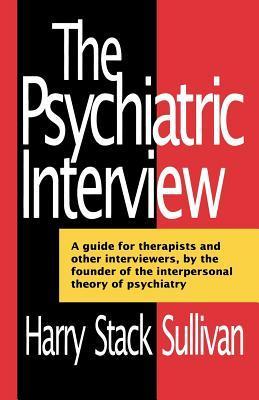Ah, if only I could have Harry Stack Sullivan on my shoulder, whispering in my ear as I interview clients..."Don't be a schmuck" would be the essence of his whispered wisdom. Of course just reading this book won't cause one to instantly become an interviewer who's not a schmuck. It takes a lot of practice -- and careful observation and correction of what one is practicing. It takes basic maturity and probably some innate gifts, as well. In any case, whatever it takes, Sullivan shows that it is certainly possible to become so artful in one's interviews that the interview itself becomes therapeutic. He shows this with graceful humor and humility. Along the way, he makes interesting, unusual diagnostic comments, some of which one might first think are dated, but on further consideration turn out simply to be countercultural and probably true.
Sullivan has much to say about anxiety, that of interviewer as well as interviewee, convincing me that anxiety is central to this and probably every other interpersonal act. In the mental health interview, the trick is to allow the interviewee to protect herself enough that she will feel safe enough to speak openly, but not so much that she is out of touch with her actual truths and needs. Or as Sullivan says, the interviewer is "not so tender to the interviewee that he prevents his doing what he is there for, but he does not make it any more distressing than he can help..." Sullivan gives many tips and even a few scripts (again possibly, but probably not, dated) for achieving this balance. Now if only I could have him perched on my shoulder, reminding me of these tips when the heat is on!

